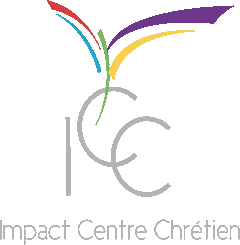
This complaint adds to the collection of criticisms of MIVILUDES by internationally renowned scholars and complaints filed by religious denominations considered by MIVILUDES to be “responsible for sectarian drifts.” Taking a stand against some of the allegations in MIVILUDES' 2024 annual report is the Impact Centre Chrétien, a French Evangelical Protestant Church.
The Impact Centre Chrétien (ICC) of the Evangelical Church has filed a complaint against the MIVILUDES
The Impact Centre Chrétien (ICC) of the Evangelical Church announces that it has filed a complaint with the investigating judge of the Paris Court against the Mission interministérielle de vigilance et de lutte contre les dérives sectaires (MIVILUDES).

Credit photo: Impact Center Chrétien
These serious accusations, considered defamatory and unfounded and clearly biased, damage the reputation of one of France's largest churches.
With this legal offensive, the Impact Centre Chrétien is coming out of the woodwork to defend its honor at a time when MIVILUDES has been the subject of harsh criticism for several months.
In an accusatory act signed in May 2025, the Centre Intercantonal d'Information sur les Croyances (CIC) denounced the “non-transparent methods” of the French government agency, which has already been condemned on several occasions for “de facto errors.”
And it is exactly the absence of proven facts that Impact Centre Chrétien intends to prove in court, since MIVILUDES is no stranger to making such blunders.
- On June 14, 2024, the Paris Administrative Court ordered the removal of defamatory passages about Jehovah's Witnesses for “inaccuracies” and lack of objectivity.
- On Feb. 21, 2025, the same court forced the MIVILUDES to withdraw the reference to “observed sectarian drifts” in the report on kibbutz Malrevers, finding the description unfounded and misleading.
- On May 16, 2025 the MIVILUDES was ordered to pay 1,500 euros to the Coordination des Associations et des Particuliers pour la Liberté de Conscience (CAP pour la Liberté de Conscience, CAPLC) for “misleading” information in its report.
“Misleading,“ ‘’inaccurate,” “unfounded”: it is a visibly controversial narrative that is now being attributed to the MIVILUDES, against the backdrop of the legitimate question of the boundary between state vigilance and violation of religious freedom.
How vigilant can the state be? The MIVILUDES will have to answer for their accusations to the ICC, which has filed a civil suit and intends to seek compensation.
About the ICC
The Impact Centre Chrétien (ICC) is a French Evangelical Protestant Church founded by pastors Yves Castanou and Yvan Castanou. It is a member of the Communauté des Églises d'expressions africaines en France (CEAF), affiliated with the Fédération protestante de France (FPF).
About the MIVILUDES
The Mission interministérielle de vigilance et de lutte contre les dérives sectaires (MIVILUDES) is a French governmental body established in 2002 to observe and analyze the phenomenon of sectarian drifts, to inform the public about the risks they pose, and to coordinate preventive and repressive actions by public powers. Since July 15, 2020, the MIVILUDES has been under the Ministry of the Interior. To strengthen the fight against sectarian drifts and strengthen victims' support, MIVILUDES has enjoyed legislative status since 2024, whereas until then it existed only on the basis of a presidential decree In recent months the institution has come under a great deal of criticism.
Renowned sociologist of religions Olivier Bobineau has criticized the fact that “MIVILUDES labels sects, sectarian phenomena and sectarian drifts, without giving any definition.”
Last August, the director of the Intercantonal Belief Information Center (CIC) signed a harsh accusatory statement against the MIVILUDES, criticizing its “ shady methods” and “inaccurate data.” In recent years, Swiss CIC experts have observed a “semantic shift” in the literature of MIVILUDES from “sectarian drifts” to “risk of sectarian drifts.” They consider this shift to be dangerous, since “risks of sectarian drifts” can be identified almost anywhere. They do not understand why a mere “risk” should justify public stigmatization and repression by the MIVILUDES.
According to the CIC, all organizations (religious, spiritual, political, sports and even scientific) can be considered “at risk” of sectarian drift. Since a risk is never equal to zero by definition, any organization can qualify as “at risk of aberration.” From this point of view, the choice of naming one group over another points to non-legal, questionable, and methodologically unsound reasons for this choice, for which the MIVILUDES is responsible. The situation is all the more worrying because the decision-making threshold that justifies declaring a group at risk of sectarian drifts is not clearly specified by the MIVILUDES.
In short, since any organization can be accused of “sectarian drifts,” it is the MIVILUDES which, based on unspecified criteria, decides who should be accused and who should not.
Source: journal chretien





